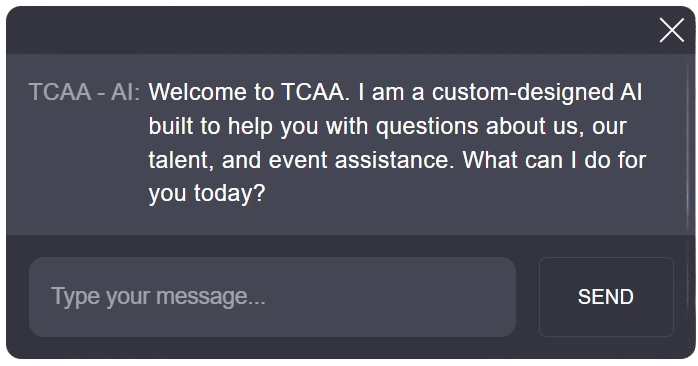Pharmacists are not just professionals who fill prescriptions; they are vital players in the healthcare arena, entrusted with a wealth of knowledge about medications. Their role is to ensure that individuals receive the right medications for their unique conditions. Understanding the pharmacist’s expertise is not just for medical professionals; it’s pivotal information for anyone concerned with health outcomes. Beyond simply distributing drugs, pharmacists provide patient education, assess drug interactions, and navigate the fascinating field of epigenetics. This expertise is more crucial than ever in a time when personalized medicine is taking center stage and setting the pace for how we approach patient care.

Understanding the Pharmacist’s Responsibility in Health Care
Pharmacists play a fundamental role that interlocks with other healthcare professionals, ensuring that patient care remains seamless and efficient. Their responsibilities stretch far and wide; they are not only focused on medications but also on improving healthcare outcomes. As the landscape of medicine evolves, pharmacists now use their understanding of pharmacogenomics—how genes affect a person’s response to drugs—to tailor treatments for patients. This evolving role underscores the pharmacist’s place as a cornerstone of modern healthcare systems, where collaboration and shared knowledge can lead to better health results.
Interestingly, while pharmacists are highly trained, they are not intended to replace doctors. They possess a Pharm. D. degree, a rigorous qualification that positions them as medication experts rather than as doctors. This distinction is crucial to recognize, especially as society increasingly seeks to understand the multifaceted roles of healthcare professionals. As developments unfold, the pharmacist’s responsibility will only amplify, requiring them to remain at the forefront of medical knowledge.

Top 5 Ways Pharmacists Contribute to Patient Safety and Medication Management
Imagine a pharmacist working hand-in-hand with healthcare teams to fine-tune a patient’s medication plan. MTM ensures those medications work effectively while minimizing the chances of adverse effects. For example, CVS Health has rolled out MTM programs, which have significantly improved management of chronic conditions like diabetes and hypertension. Regular reviews and recommended adjustments in medication can make all the difference in managing these lifelong challenges.
Patient education is crucial, and who better to provide it than your friendly neighborhood pharmacist? Through counseling sessions, pharmacists guide patients in understanding their medication regimens—a game changer for health literacy and compliance. Walgreens pharmacists offer personalized consultations, ensuring that patients leave the pharmacy with a clear understanding of their prescriptions. This effort builds a bridge of knowledge that helps patients take charge of their health.
With the dizzying array of medications available today, spotting potential drug interactions can be daunting. Enter the pharmacist: research highlights their pivotal role in identifying adverse drug events, especially in high-risk populations like the elderly. A notable study in the Journal of the American Geriatrics Society points out that pharmacist-led interventions have significantly cut down emergency visits tied to medication errors. This proactive approach to patient safety can’t be overstated.
As the science of epigenetics dives deeper into how our environment and lifestyle affect our genes, pharmacists are stepping up to apply these insights in medication therapy. They enable personalized medicine by tailoring treatments based on genetic markers. Initiatives like the Clinical Pharmacogenetics Implementation Consortium (CPIC) equip pharmacists with the tools to integrate genetics into medication management, ultimately enhancing treatment effectiveness.
The synergy between pharmacists and other healthcare professionals yields remarkable results for patient outcomes. For instance, in surgical settings, a pharmacist’s expertise is vital in managing anesthesia-related medications. The Mayo Clinic stands out for its collaborative practice, where pharmacists take part in both preoperative and postoperative care. This kind of teamwork translates to higher safety and success rates for patients during procedures.

The Pharmacist’s Insight into Epidemiology and Public Health
Pharmacists are not only involved in direct patient care; they also contribute valuable insights to public health and epidemiology. Their role in medication use monitoring arms them with the information needed to help control epidemics and improve health outcomes. By engaging in health screenings and vaccination programs, pharmacists stand at the frontline of disease prevention. During the COVID-19 pandemic, it was striking to see how pharmacies like those in the Kroger Health network evolved to not only provide vaccinations but also become hubs of public health education. These efforts are a testament to how indispensable pharmacists have become during health crises.
Their knowledge allows them to dissect data and draw conclusions that matter. This data-driven approach to healthcare enhances the capabilities of public health initiatives. The next time you stroll into a pharmacy, consider the profound impact these healthcare professionals have on your community’s health.

Unique Challenges Facing Pharmacists Today
Pharmacists navigate a tricky landscape filled with pressures and challenges. From heavy workloads to conflicting job demands, the environment can be tough. The rapid shift brought by telehealth has transformed many pharmacist responsibilities, requiring them to adapt swiftly. With platforms like GoodRx helping patients find affordable medications, these professionals must embrace new technologies to stay relevant and invaluable to patient care.
The evolution of pharmacy practice demands constant learning and adaptation. As regulations shift and technology advances, pharmacists must remain agile in their approach. This adaptability not only improves their service delivery but also reinforces their trusted status in the healthcare community.

Innovative Perspectives on the Future of Pharmacy Practice
Looking ahead, the future of pharmacy looks bright. The rise of artificial intelligence and machine learning in pharmacy practices will likely revolutionize personalized medication management. As pharmacists continue to engage in more clinical roles, there’s a noticeable shift toward specialized training in essential areas like pharmacogenomics and telepharmacy.
The time is ripe for pharmacists to take charge and thrive in health innovation. Their role is evolving from traditional dispensing to future-oriented solutions that reflect the patients’ needs. By fully embracing the integration of technology into their practice, pharmacists will be equipped to deliver unparalleled support, significantly benefiting both patients and healthcare systems.
In a world where health is paramount, understanding the pharmacist’s role in medication expertise becomes essential. These professionals not only fill prescriptions; they are, quite literally, the fire starter of patient care, integrating knowledge and compassion to optimize health outcomes. Let’s support and recognize the invaluable contributions pharmacists continue to make, reinforcing their position as trusted medication experts in the healthcare landscape today.
The Pharmacist’s Essential Role in Medication Expertise
Unveiling the Pharmacist’s Importance
Did you know that pharmacists are the most accessible healthcare professionals in many communities? They’re often the first line of defense in medication management and health advice. An interesting tidbit: a pharmacist’s expertise goes far beyond simply dispensing pills. They play a vital role in educating patients about their medications and potential side effects while ensuring the right drug is given at the right dose. Talk about a superhero with a white coat! Speaking of safety, with the rise in digital health tools, pharmacists are also becoming crucial in the realm of cybersecurity, helping to safeguard patient information in this digital age.
Beyond Medications: The Role of a Pharmacist
Pharmacists don’t just stand behind the counter; they’re involved in various sectors, including clinics and hospitals. Some even specialize in areas that require additional certifications, like the PMP (Project Management Professional), to manage complex medication therapy in clinical settings. Here’s something to ponder: during the Russian lathe accident, pharmacists played a role in managing the health implications arising from the event, showcasing their comprehensive expertise. It really highlights how pharmacists can jump in during times of crisis, whether it’s a health emergency or just a patient in need of urgent care.
The Future of Pharmacy: Innovation and Growing Responsibilities
As healthcare evolves, so does the pharmacist’s role. They’re stepping into new territories like telepharmacy, allowing them to reach and educate patients remotely. It’s worth noting that innovation often opens doors to new opportunities like venture capital investments, which are being funneled into pharmaceutical technology startups. Moreover, since the Russo-Ukraine war has impacted the availability of medications, pharmacists have become crucial in sourcing and managing drug supplies. Fun fact: many are even involved in mental health advocacy, promoting initiatives like affirmations for recovery, which aim to support patients in their healing journey. This multifaceted approach highlights how vital pharmacists are, not just in medication expertise, but as integral members of the healthcare team.

Do pharmacists go to med school?
Pharmacists don’t go to med school. They complete a Doctor of Pharmacy (Pharm. D.) degree instead, which is specifically focused on medications and their use in healthcare.
How long does it take to become a pharmacist in Texas?
In Texas, it typically takes about six to eight years to become a pharmacist, including prerequisites and the Pharm. D. program, along with passing licensure exams.
Is becoming a pharmacist hard?
Becoming a pharmacist can be tough because it involves a rigorous education and training process. However, with dedication and hard work, it’s definitely doable for those who are committed.
What are 4 types of pharmacist?
There are four main types of pharmacists: community pharmacists who work in retail settings, clinical pharmacists who work in hospitals, industrial pharmacists focused on drug development, and consultant pharmacists who provide expert advice in healthcare settings.
Is it harder to become a doctor or pharmacist?
Many people say it’s generally harder to become a doctor due to the lengthy education and training requirements, but pharmacy also has its challenges with a strong focus on pharmacology and drug therapy.
What is the shortest time to become a pharmacist?
The shortest time to become a pharmacist varies, but you can typically complete your Pharm. D. in about four years after your undergraduate studies.
Is pharmacy school hard?
Pharmacy school can indeed be challenging, as it requires grasping a lot of complex material related to medications, patient care, and medical sciences.
What is the average salary for a pharmacist in Texas?
The average salary for a pharmacist in Texas is around $150,900, although it can vary based on experience and specific job roles.
What is the cheapest pharmacy school in Texas?
The cheapest pharmacy school in Texas is usually the Texas Southern University College of Pharmacy, but tuition costs can change, so it’s handy to check the latest info directly.
Is pharmacist harder than nursing?
Some think pharmacy is harder than nursing due to the heavy emphasis on drugs and their interactions, while nursing involves a broader range of patient care skills.
Can you make a lot of money as a pharmacist?
Yes, pharmacists can earn a good salary, often making a comfortable living depending on their practice area and location.
What are three cons of being a pharmacist?
Three cons of being a pharmacist include long hours, high responsibility, and sometimes dealing with difficult patients or insurance issues.
What pharmacy job pays the most?
The highest paying pharmacy jobs are often in specialized clinical roles or positions in pharmaceutical companies, especially those involving management or research.
What are the 10 stars of a pharmacist?
The ten stars of a pharmacist include their role as medication experts, patient educators, community health advocates, interprofessional collaborators, and more, all contributing to safe and effective medication use.
Do you address a pharmacist as a doctor?
It’s common to address pharmacists as “doctor” because they hold a Pharm. D., but it might depend on the context and the setting.
Do pharmacists have MD or PHD?
Pharmacists have a Doctor of Pharmacy (Pharm. D.), which is distinct from having an MD or PhD. They’re highly educated, but their training focuses specifically on pharmacy.
Is med school harder than pharmacy school?
Many say med school is harder than pharmacy school, primarily due to the length of training and the breadth of subjects covered.
Do pharmacists take the MCAT?
Pharmacists don’t take the MCAT; that test is for aspiring medical students. Instead, they take the Pharmacy College Admission Test (PCAT) for pharmacy school admissions.
Who earns more, a doctor or a pharmacist?
Typically, doctors earn more than pharmacists. The difference in salary can be significant, influenced by specialty, hours worked, and experience level.


















